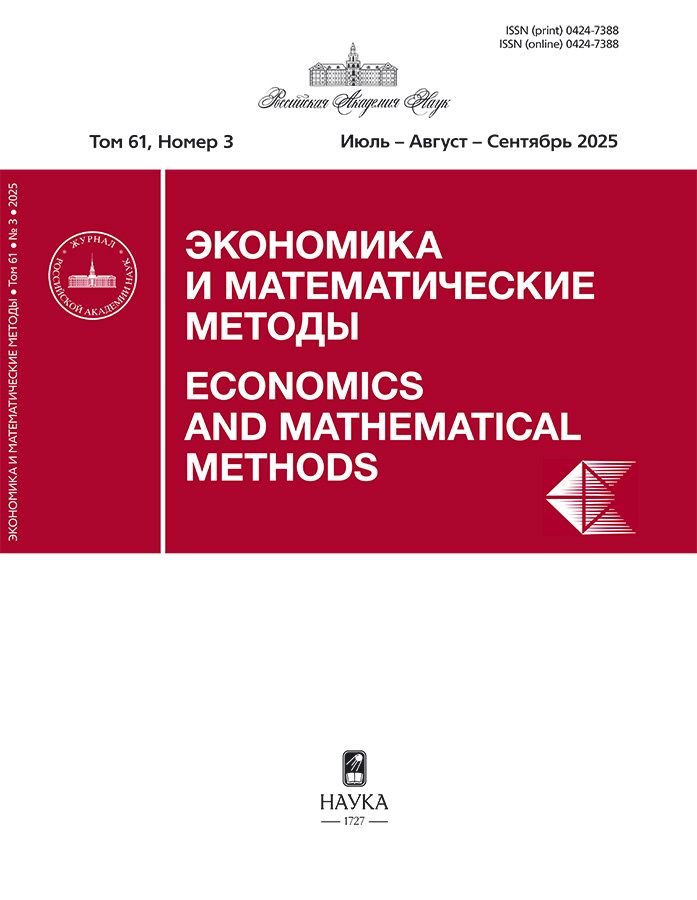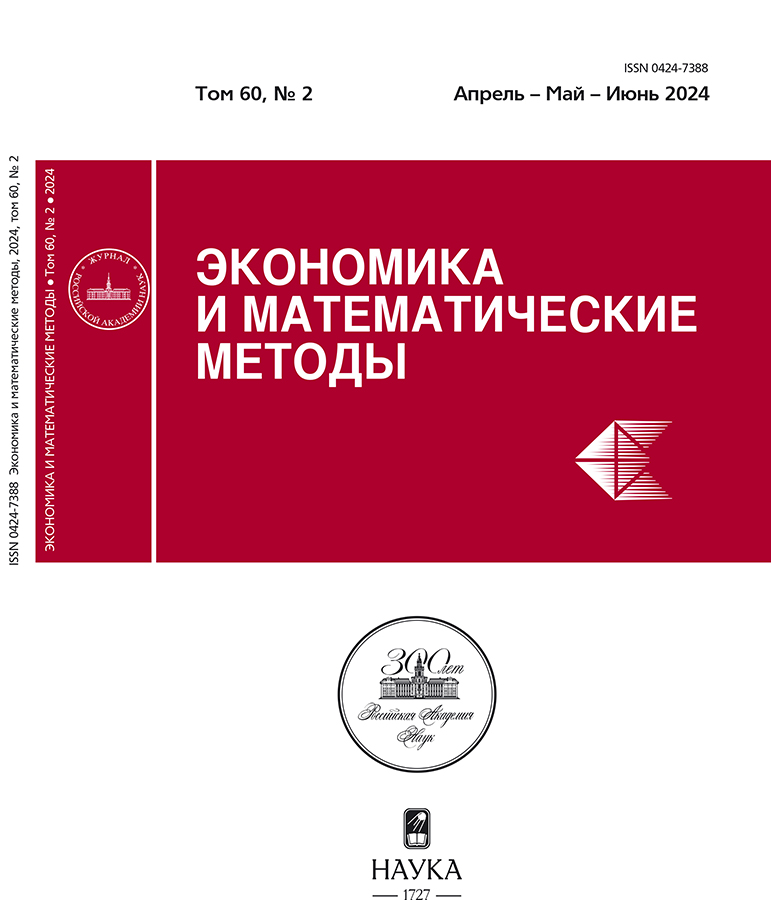Экономический рост в развитых и развивающихся странах при переходе к возобновляемым источникам энергии
- Авторы: Кудрявцева О.В.1, Чернявский С.В.2, Уткина А.В.1
-
Учреждения:
- МГУ имени М. В. Ломоносова
- ЦЭМИ РАН
- Выпуск: Том 60, № 2 (2024)
- Страницы: 40-49
- Раздел: Мировая экономика
- URL: https://medjrf.com/0424-7388/article/view/653300
- DOI: https://doi.org/10.31857/S0424738824020049
- ID: 653300
Цитировать
Полный текст
Аннотация
Сегодня экономическое развитие мира неразрывно связано с глобальными экологическими проблемами. В этих условиях актуальным стал поиск решений проблемы без неблагоприятного воздействия на экономический рост. Энергетический переход может неоднозначно влиять на темпы и динамику экономического роста. Цель данной работы — изучить, как динамика объемов инвестиций в возобновляемую энергетику влияет на экономический рост развитых и развивающихся стран, а также проверить гипотезы: 1) для развивающихся стран рост инвестиций в отрасли возобновляемой энергетики стимулирует экономический рост; 2) для развитых стран рост инвестиций в отрасли возобновляемой энергетики затормаживает экономический рост. При увеличении на 1% доли дохода, инвестированной в капитал возобновляемой энергетики, в развитых странах темпы экономического роста понизятся на 0,0001%, в то время как в развивающихся странах — вырастут на 0,0001%. Для развитых стран такое снижение темпов экономического роста можно рассматривать как некую плату за предпочтение будущего состояния окружающей среды перед текущим получением дополнительного выпуска, а для развивающихся стран энергетический переход положительно влияет на темпы экономического роста. Четвертый энергетический переход, основанный на расширении использования возобновляемых источников энергии (ВИЭ) и вытеснении ископаемых видов топлива, является решением глобальных экологических проблем, вызванных эмиссией CO2 в атмосферу. Такой переход необходим, даже при росте экономических издержек, поскольку без него невозможно устойчивое развитие, как текущего, так и будущих поколений.
Полный текст
Об авторах
О. В. Кудрявцева
МГУ имени М. В. Ломоносова
Автор, ответственный за переписку.
Email: olgakud@mail.ru
Экономический факультет
Россия, МоскваС. В. Чернявский
ЦЭМИ РАН
Email: vols85-85@mail.ru
Россия, Москва
А. В. Уткина
МГУ имени М. В. Ломоносова
Email: kanashkina.a@yandex.ru
Экономический факультет
Россия, МоскваСписок литературы
- Башмаков И. А. (2020). Мониторинг применения низкоуглеродных технологий в России: возможности для ускорения и риски отставания. М.: ЦЭНЭФ. 261 с. Режим доступа: http://www.cenef.ru/file/Report%202020.pdf [Bashmakov I. A. (2020). Monitoring the application of low-carbon technologies in Russia: Opportunities for acceleration and risks of falling behind. Moscow: Center for Energy Efficiency. 261 p. Available at: http://www.cenef.ru/file/Report%202020.pdf (in Russian).]
- Клапцов В. М. (2012). Итоги Саммита «РИО+20» // Бюллетень Национального комитета по исследованию БРИКС. № 5. Спецвыпуск. Режим доступа: https://www.nkibrics.ru/system/asset_bulletins/data/53cf/aeea/676c/7665/0017/0000/original/bulleten-brics-5.pdf?1406119658 [Klaptsov V. M. (2012). RIO+20 Summit Results. Center for Economic Research, Russia’s Institute for Strategic Studies (RISS), 29.06.2012, Special Issue. Available at: https://www.nkibrics.ru/system/asset_bulletins/data/53cf/aeea/676c/7665/0017/0000/original/bulleten-brics-5.pdf?1406119658 (in Russian).]
- Прогноз развития энергетики мира и России (2019). Под ред. А. А. Макарова, Т. А. Митровой, В. А. Кулагина. М.: ИНЭИ РАН, Московская школа управления СКОЛКОВО. 210 с. ISBN: 978-5-91438-028-8. Режим доступа: https://energy.skolkovo.ru/downloads/documents/SEneC/Research/SKOLKOVO_EneC_Forecast_2019_Rus.pdf [Forecast of development of the world and Russian energy (2019). A. A. Makarov, T. A. Mitrova, V. A. Kulagin (eds.). Moscow: Institute for Energy Studies, Russian Academy of Sciences, Moscow School of Management Skolkovo. 210 p. ISBN: 978-5-91438-028-8 Available at: https://energy.skolkovo.ru/downloads/documents/SEneC/Research/SKOLKOVO_EneC_Forecast_2019_Rus.pdf (in Russian).]
- Яшалова Н. Н., Васильцов В. С., Потравный И. М. (2020). Декарбонизация черной металлургии: цели и инструменты регулирования // Черные металлы. № 8. С. 70–75. [Yashalova N. N., Vasiltsov V. S., Potravny I. M. (2020). Decarbonization of ferrous metallurgy: Goals and regulation tools. Chernye Metally, 8, 70–75 (in Russian).]
Дополнительные файлы











